Term Page
Removal Defense
Many noncitizen defendants are already deportable (“removable”). This includes all undocumented people, as well as lawful permanent residents (green card-holders) who have become deportable because of a conviction. If immigration authorities find these people – which is likely to happen – they will be deported unless they are granted some kind of immigration relief. For these defendants, staying eligible to apply for immigration relief is their most important immigration goal, and may be their highest priority in the criminal defense.
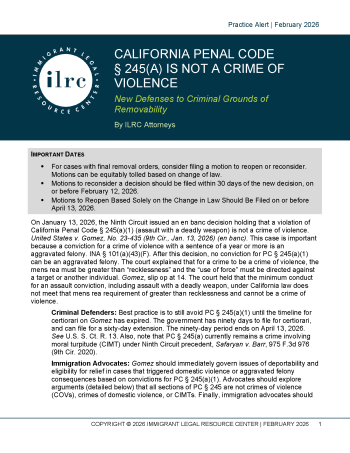
On January 13, 2026, the Ninth Circuit issued an en banc decision holding that a violation of California Penal Code § 245(a)(1) (assault with a deadly weapon) is not a crime of violence. United States v. Gomez, No. 23-435 (9th Cir., Jan. 13, 2026) (en banc).
The U.S. Department of Justice has issued a new rule that changes how immigration appeals are handled. The new rule shortens the time you have to appeal—which is how you ask for another court to review an unfavorable decision from an immigration judge.
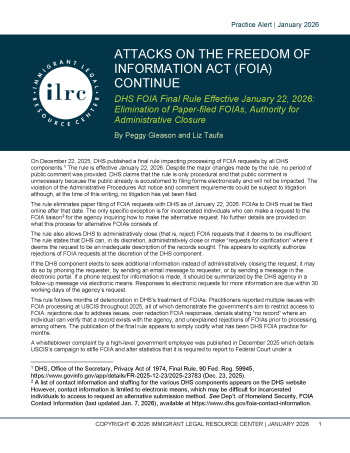
On December 22, 2025, DHS published a final rule impacting processing of FOIA requests by all DHS components. The rule is effective January 22, 2026. Despite the major changes made by the rule, no period of public comment was provided. The rule eliminates paper filing of FOIA requests with DHS as of January 22, 2026. FOIAs to DHS must be filed online after that date. The rule also states that DHS can, in its discretion, administratively close or make “requests for clarification” where it deems the request to be an inadequate description of the records sought.
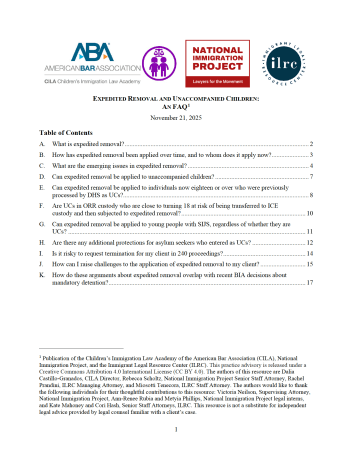
This resource – created with our partners at the Children’s Immigration Law Academy and National Immigration Project – answers common questions about expedited removal and its application to children and offers arguments against its application to young people who were processed as UCs and young people with approved special immigrant juvenile status (SIJS), should the government attempt to apply it to those groups.
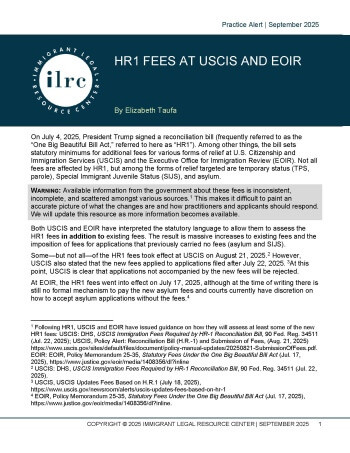
This practice advisory provides information about recently implemented fee increases at USCIS and EOIR. These fee increases are a result of the “One Big Beautiful Bill Act” also known as HR1. This advisory explores what we know and what we still don’t know about the fees, how to pay them, and potential future changes.
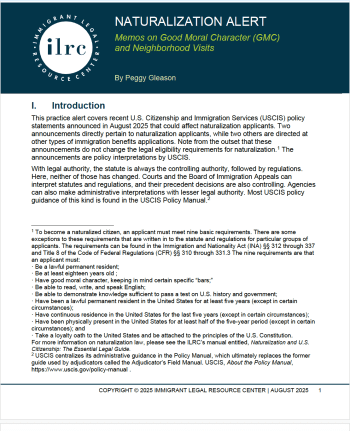
This practice alert covers recent U.S. Citizenship and Immigration Services (USCIS) policy statements announced in August 2025 that could affect naturalization applicants.
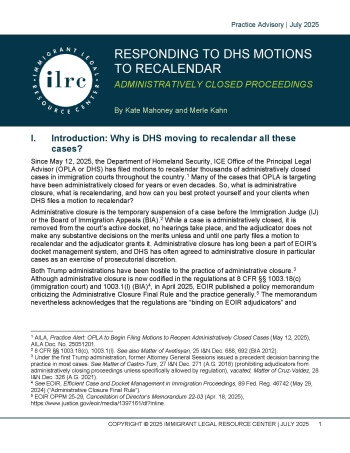
In recent months, the Department of Homeland Security has begun filing thousands of motions to recalendar administratively closed proceedings. This trend is raising questions about how attorneys and accredited representatives can respond to these motions and protect their clients’ interests, particularly in cases that have been administratively closed for many years. This advisory explores those questions and offers strategy considerations when determining how to proceed in each case.
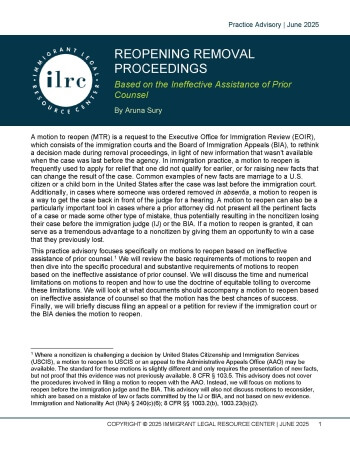
This practice advisory focuses on motions to reopen based on ineffective assistance of prior counsel. It reviews the basic requirements of motions to reopen and then dives into the specific procedural and substantive requirements of motions to reopen based on the ineffective assistance of prior counsel. It discusses the time and numerical limitations on motions to reopen and how to use the doctrine of equitable tolling to overcome these limitations. It also covers what documents should accompany a motion to reopen based on ineffective assistance of counsel so that the motion has the best chances of success. Finally, it briefly discusses the option of filing an appeal if the immigration court or the BIA denies the motion to reopen.
This advisory discusses the immigration consequences of a conviction for a controlled substance offense under California Prop 36, specifically Cal. H&S Code § 11395. This advisory explains the immigration consequences of a criminal plea to a Prop 36 controlled substance offense. It outlines criminal defense strategies for defenders to avoid these pleas and outlines removal defense strategies for immigration practitioners where the plea cannot be avoided.